Russia’s brush with civil war leaves Vladimir Putin wounded, weaker
Having avoided by a hair’s breadth a full scale civil war against a former convict and hot dog salesman, the desperate Russian president may well decide that escalation is the best way for him to rally his supporters.
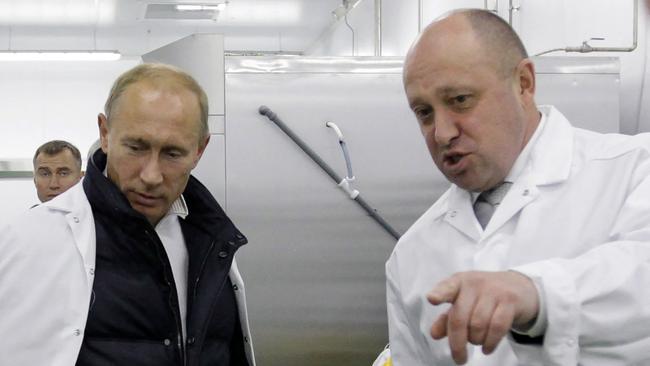
Putin is weaker, more desperate and under greater threat than at any time since he took power in 2000, despite a near Stalinist system of domestic repression.
It is the dismal truth that Putin faces challenge from Russia’s nationalist right, not from the liberal centre.
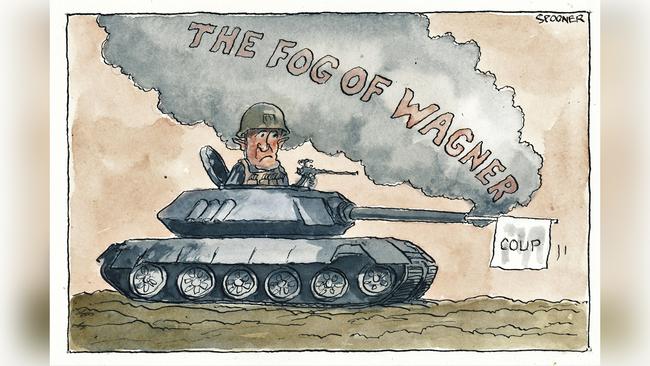
Prigozhin, the leader of the notorious Wagner group of mercenaries who had previously done Putin’s dirtiest work for him, turned and rebelled. He marched his troops from Ukraine a thousand kilometres towards Moscow with very little military resistance from Russia’s army.
At first, Prigozhin avoided personal criticism of Putin, focusing his anger on Defence Minister Sergei Shoigu and Chief of the General Staff Valery Gerasimov, for the chaos and mess of Russia’s military effort in Ukraine.
For one night of the deepest uncertainty, Putin himself didn’t condemn Prigozhin by name. Finally, Putin denounced Prigozhin, though still not using his name, calling him a traitor and his mutiny an act of terrorism.
Rather daringly, Putin compared the situation to the downfall of the last czar, Nicholas II, in 1917, who was hated in part because of Russia’s brutal and incompetent prosecution of the unpopular first world war. Even more than the resurrected communist he is, Putin has for years resembled a new Russian czar.
As Prigozhin marched towards Moscow he encountered little direct military confrontation. In claiming he had 25,000 troops at his disposal, Prigozhin was wildly overselling the strength of his forces. Nonetheless, horrific civil violence threatened, and the potential for devastating instability in a nation and a military that possesses nearly 5000 nuclear war heads.
Then suddenly, the satrap ruler of Belarus, Alexander Lukashenko, had, on the Kremlin’s behalf, negotiated a deal with Prigozhin. He would send his troops back to Ukraine and all criminal charges against him and his men would be dropped. Prigozhin would travel to Belarus where he would be unmolested.
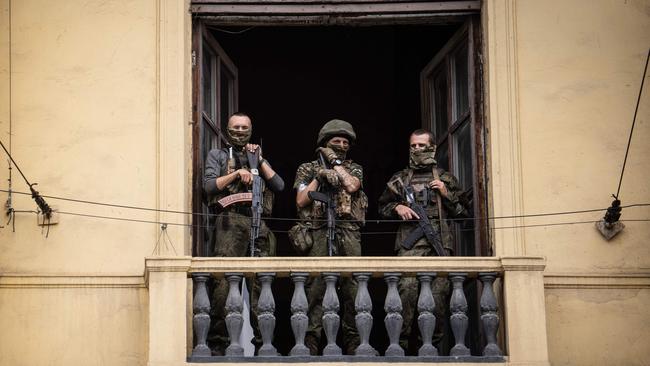
This achieved for Putin the goal of not having to wage war against Russian rebels on Russian soil. That’s a huge relief for him. But the deal is nonetheless humiliating for Putin. Prigozhin defied and mocked him and took military control of two Russian cities and yet he doesn’t even go to jail. Prigozhin also called out the pretext of the war as a series of lies.
But this story is a long way from finished. Among countless questions: Will Prigozhin still control some Wagner group forces, if not in Ukraine in Africa where he has many soldiers and lucrative businesses? Will Putin move eventually to have Prigozhin assassinated, as he has done with so many people who’ve opposed him in the past? Will the Wagner group soldiers in Ukraine join the Russian army, as suggested in the public announcements of the deal, or maintain their own formations, or drift away to serve in Wagner or other groups elsewhere in the world?
Prigozhin is a savagely brutal Russian war lord. He chose as Wagner’s symbol a sledge hammer, after footage emerged of Wagner operatives executing by sledge hammer one of their number suspected of treachery.
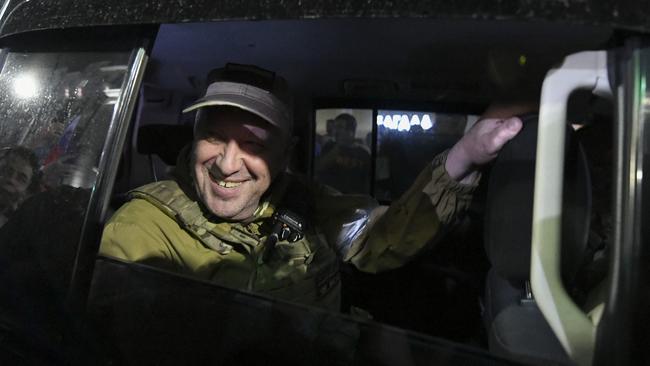
But he and his vicious troops have been more militarily effective than the widely demoralised forces under the command of the regular Russian army. Does this disruption offer Ukraine military opportunities? The Ukrainian counteroffensive has not been going especially well, because it’s extremely difficult for an offensive force without clear air superiority to dislodge an entrenched military force with well prepared defensive positions.
The Wagner group’s removal from the Ukraine theatre must surely weaken the Russian war effort. Putin may also feel the necessity of bringing more elite troops back home, in case he’s ever again threatened militarily in Moscow.
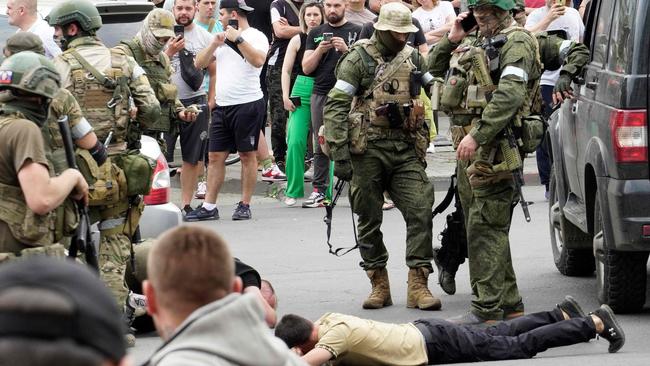
What about the other private armies in Russia?
Gazprom has a force of 6000 soldiers. The Chechens, now working hand in glove with Putin, have thousands of fighters under their own command, who were apparently willing to fight against Prigozhin. There’s no guarantee that will always be their inclination.
Overall Putin is hugely humiliated. Ukrainian President Volodymr Zelensky mocked him for apparently fleeing Moscow, calling him “obviously very afraid and probably in hiding”. The contrast with Zelensky himself, who stayed in Kyiv to lead his national resistance when it looked as though the Russian military would take the city in days, is obvious.
For all that, Putin may not only be weaker but more dangerous than he’s ever been. An absolute dictator in as much trouble as Putin is may well decide that escalation is the best way for him to rally his supporters. And given the failure of his conventional arms, escalation could well mean some use of nuclear weapons.
This desperately dangerous situation has a long way to run.


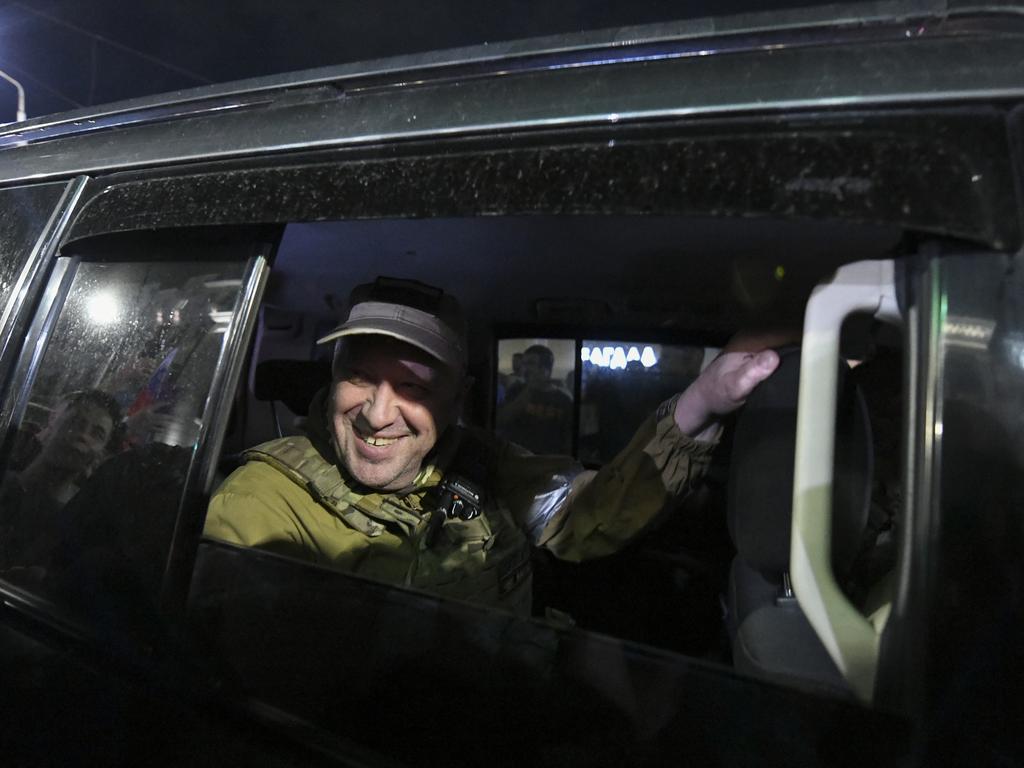
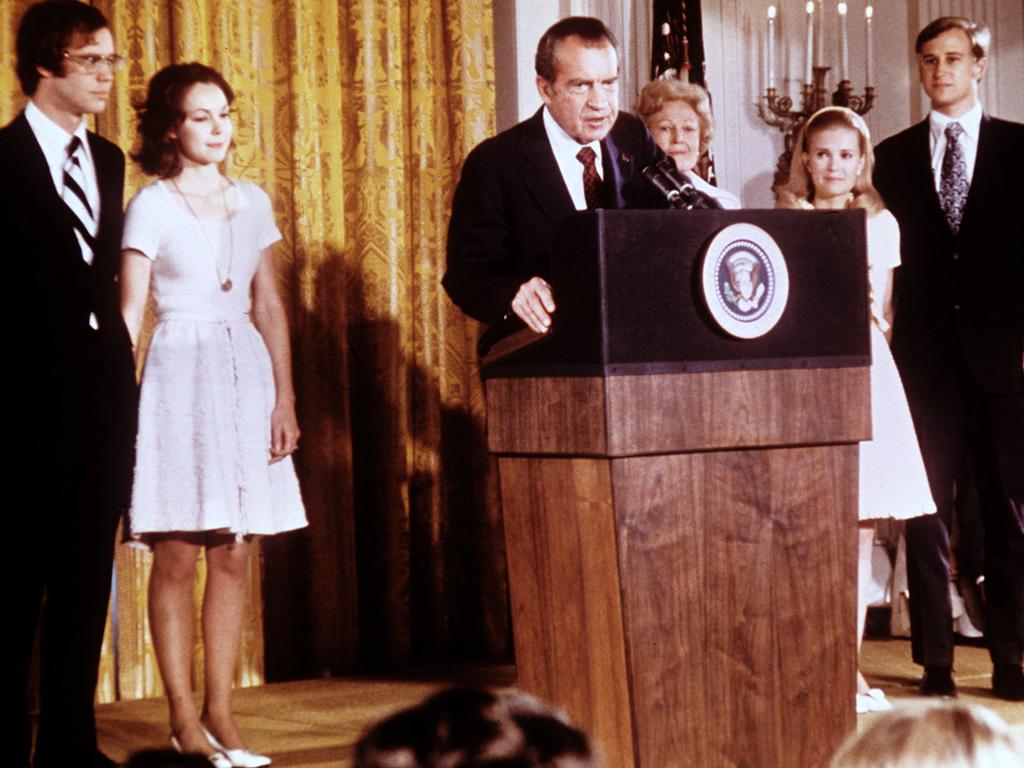
Vladimir Putin is now a wounded and diminished dictator, who, far from conquering Ukraine and re-establishing the Russian Empire, avoided by a hair’s breadth a full scale civil war against a former convict and hot dog salesman, Yevgeny Prigozhin, whom Putin himself transformed into a powerful Russian oligarch and mercenary leader.